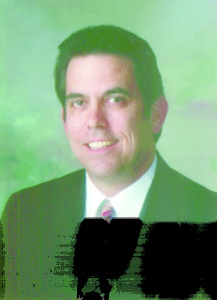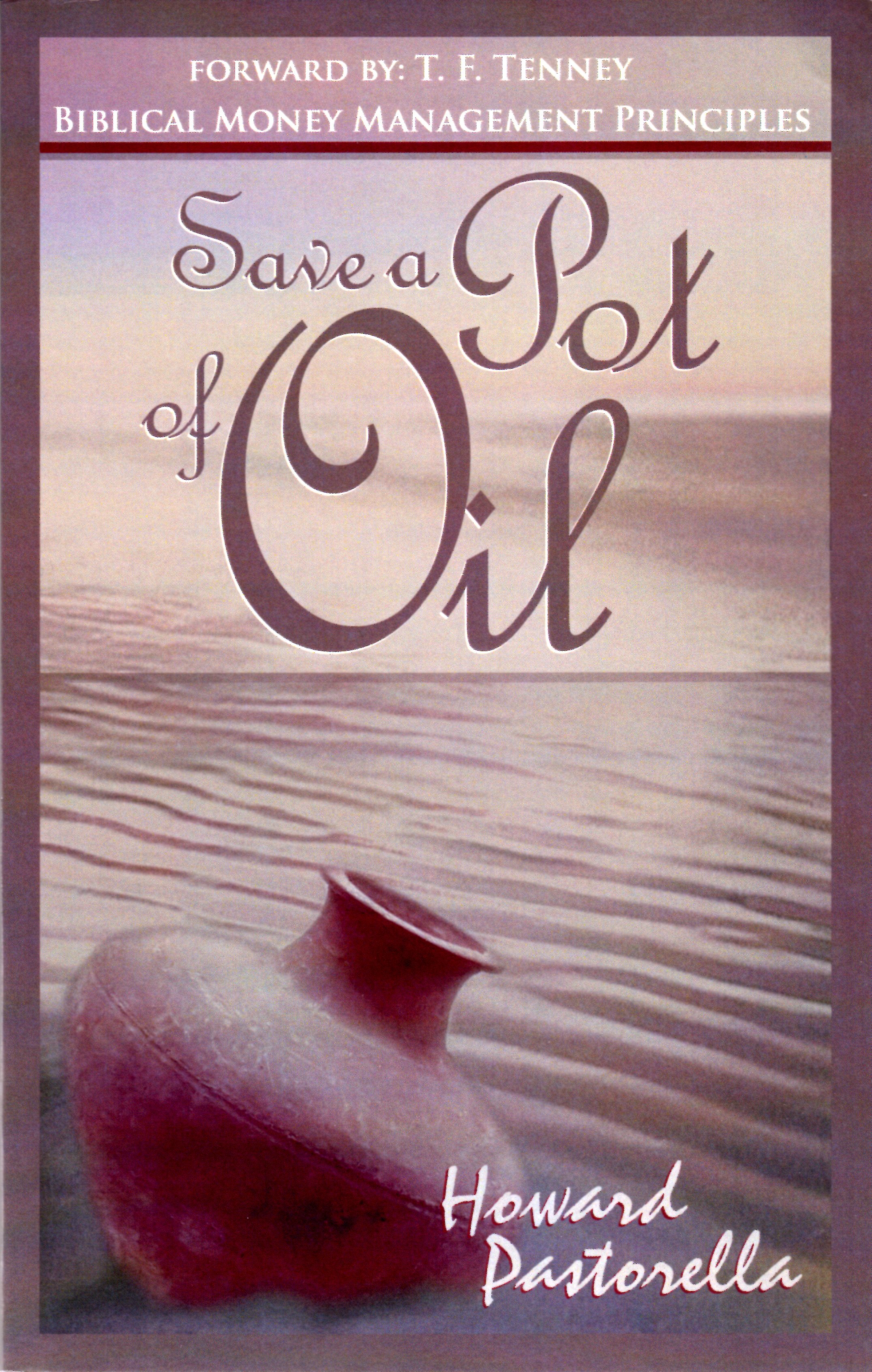By Howard Pastorella
Principle: Faith without works is dead.
2 Kings 4:3 – Then he said, Go, borrow thee vessels abroad of all thy neighbours, even empty vessels; borrow not a few.
Go, Again?
Ever notice how many times the Scriptures mentions the word “GO”? This command holds true for promoting the plan of salvation as well as the acquiring of income and assets. In 2 Kings 4:3, the “go…abroad” means to put a wall of separation between your couch and your commerce. In laymen’s terms, financial activity takes place outside of the home. Bible occupations included farmers, fishermen, merchants, sailors and shepherds, to name just a few. Even Mrs. Proverbs 31 wasn’t in the house all of the time.
Borrow? Are You Sure?
The prophet’s command to the widow to go borrow may seem a bit confusing. Wasn’t borrowing the very thing that got them into trouble? Yes, it was; however, this was a different kind of borrowing. These vessels were empty and of minimal value. It didn’t cost a thing to borrow them. In terms of borrowing, these assets were non-interest bearing. Briefly, interest is the money you pay for borrowing other people’s money. When it comes to interest, God’s people should be the ones who are being paid for the use of their money. We’ll discuss interest more in another chapter, but the only interest a child of God wants to be involved in is interest income. How wise is it to pay $1.18 or $1.22 for something that costs $1.00? You don’t have to be a Wall Street Wizard to figure that one out!
Abroad of All Thy Neighbors
God never violates His own laws. The widow and her sons were to be blessed physically and financially but only as a condition of their obedience. The Law of the Harvest is a conditional law. If you sow, then you will reap. In the case of Mrs. Prophetson and her boys, they had to provide the legwork as an indication of their obedience to the Word of the Lord as spoken by Elisha. They had to “go… abroad” to all of their neighbors and borrow many vessels. If they had left out going to one house during the pot-collecting process, they would have missed the complete blessing God had intended for them. Suppose Joshua and the Israelites would have marched around Jericho six times on that last day instead of seven? Or what if Naaman would have dipped six times instead of seven? To reap the harvest of God’s promises of provision, the principles in His Word must be fully obeyed. Nothing can be omitted in the process of sowing and reaping. The children of Israel were led into the Promised Land, but they still had to gird on their swords, go tromp through the milk and honey, and conquer it.
Even Empty Vessels
This financial blessing for the Prophetson family would come straight from God. He would get the credit. Oops! Bad word. Credit. Since God owns all of the resources, He doesn’t need credit. Instead of using the “C” word, let’s just say He gets the praise and glory. The instructions were clear. Borrow empty vessels. God was eliminating all possible doubt as to who was the One doing the providing. No one else could take any glory if the vessels were empty. This miraculous manifestation would not be coming from the clay jars of nosy next-door neighbors. Even Elisha said, “What shall I do for thee?” The only human interaction in this transaction would be the widow woman and her sons.
The principle of being financially independent was understood and followed by the patriarch Abraham. Let’s follow the dialogue between Abraham and the king of Sodom which was introduced in the previous chapter.
Genesis 14:21 – And the king of Sodom said unto Abram, Give me the persons, and take the goods to thyself.
Genesis 14:22 – And Abram said to the king of Sodom, I have lift up mine hand unto the LORD, the most high God, the possessor of heaven and earth,
Genesis 14:23 – That I will not take from a thread even to a shoelatchet, and that I will not take anything that is thine, lest thou shouldest say, I have made Abram rich:
Not even a kingly thread! Or a shoe latchet! Or even a fiber from a flea-bitten camel! Father Abraham wasn’t about to let anybody, especially this pagan king, lay claim to the position of provider for even the barest elements of his life. He knew the extreme importance of having no external financial influence or control upon his life. (Besides, it was quite presumptuous of the king of Sodom to think he could tell Abram to take the goods anyway. If it wasn’t for Abram and his 300 home-grown commandos, the king of Sodom would be witnessing the fortunes of Sodom being enjoyed by the victorious Babylonian captors.) Father Abraham knew his provider…the most high God, possessor of heaven and earth!
Not a Few
God has always been a God of Abundance. In this case, the man of God told Mrs.
Prophetson to borrow many vessels, “not a few”. She and her sons were to get busy. Sometimes lack is the first cousin to lazy. They are directly related. Vision cannot be limited when it comes to providing income for the family. A half a cup of seed will not be enough to sow eighty acres of prime farmland. And one or two empty pots were not going to do the job for this needy family. Elisha told them to borrow vessels from all of their neighbors. If they had done less, God’s plan for their total deliverance would have been sabotaged by their disobedience. To triumph financially, “try” will have to have a lot of “umph” added to it.
When God’s intent is matched by human faith in and obedience to His Word, the result is always displayed beyond our ability to ask or think. The children of Israel were witnesses to this principle throughout their 40-year trek through the wilderness. Manna miraculously appeared daily on the ground for them to eat. However, they had to kick off the covers and gather it every morning before the sun waxed hot (see Exodus 16:21). God often supplies the miracle, but there are occasions when man has to supply the muscle.
Simon Peter also found out that Jesus’ idea of abundance exceeds even the human capacity
to comprehend.
Luke 5: 4 – Now when he had left speaking, he said unto Simon, Launch out into the deep, and let down your nets [plural] for a draught.
Luke 5:5 – And Simon answering said unto him, Master, we have toiled all the night, and have taken nothing: nevertheless at thy word I will let down the net [singular]. (Emphasis by the author).
Simon Peter did not wholly follow the instructions of the Lord. Jesus told the apostle to let down his nets [plural], but Peter only put down one net [singular]. The blessing that God had in mind overwhelmed the one pitiful little net and then filled two boats to sinking capacity. What would have happened if he had let down many nets? Or better yet, what if the Apostle Peter would have acted in faith and called all available fishing boats from the shore to help him before he let down his net? The text indicates that God filled everything they put in the water. It’s something to think about anyway.
Jesus supplied the miracle, but Peter had to use his own boat and net. It was his muscles that were used to row out into the deep and let down the net. Most importantly, Peter had to be obedient to God’s Word even if his obeying ran in complete contrast to his past experience or in opposition to how he felt at the time.
God was about to provide a remedy for Mrs. Prophetson. Her circumstances required immediate relief. At this point, time would not permit the full cycle of sowing and reaping. God was going to speed up the process of provision for her. However, she and her sons were going to have to be a part of the process.
The above article, “Hear Instruction” was written by Howard Pastorella. The article was excerpted from chapter 3 in Pastorella’s book, Save a Pot of Oil.
The material is copyrighted and should not be reprinted under any other name or author. However, this material may be freely used for personal study or research purposes.





1 thought on “Hear Instruction (Entire Article)”
Comments are closed.